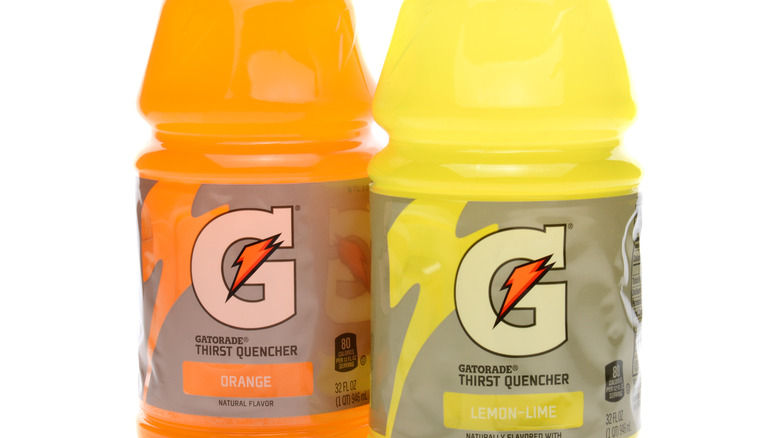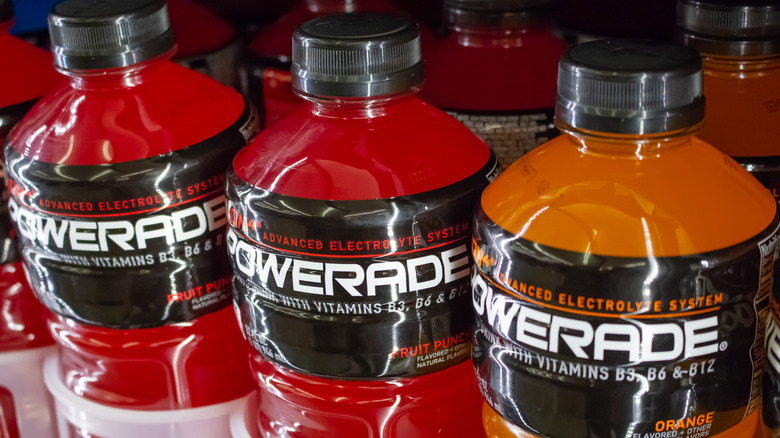What It Actually Means When A Drink Contains Electrolytes
Commercials for sports drinks, such as Gatorade or Powerade, often tout their benefits as a replenisher of your body's electrolytes lost through sweat, but what does it mean exactly when a beverage contains electrolytes?
Electrolytes are definitely important: they are salts that we put into our bodies, usually through food. They include essential minerals like sodium, calcium, and potassium — also known as ions — "that are vital to many key functions of the body," according to Cedars-Sinai. Electrolytes help keep you hydrated and regulate nerve and muscle function (via Medical News Today). In fact, everyone needs them to survive, as they provide an electric charge that controls "nerve impulses" and "the flow of water in our cells." Without them, your nerves would go on the fritz.
However, you can also have too much of a good thing, and some sports drinks have a surplus of these vitamins and minerals. This sometimes exceeds the daily recommended intake, which can itself lead to health risks, according to Dr. Elizabeth Klingbeil, an assistant professor of nutrition at Johnson and Wales University (via Mashed).
Pros and cons of drinks with electrolytes
Gatorade has established marketing partnerships with many high-profile athletes and professional sports leagues throughout the years. Often, truth is the first casualty in advertising, but let's examine whether sports drinks are actually viable options for electrolyte replacement.
Sports drinks primarily contain water, carbohydrates, and electrolytes. The most common types of electrolytes found in sports drinks are sodium and potassium, per Healthline. It can beneficial to replace carbs and electrolytes with sports drinks, particularly with respect to endurance or high-intensity activities. However, studies remain inconclusive on the benefits of sports drinks for short-duration exercise in the 30-60 minute range (via Nutrients).
You do lose electrolytes when you sweat, but Gatorade and other sports drinks, while one source of electrolytes, are often loaded with sugar. There are also sports drinks available that contain no sugar and are "flavored instead with low-calorie sweeteners" (via Harvard T.H. Chan School of Public Health).
For the non-athlete who watches football or basketball from their recliner rather than participating in games, sports beverages are really "just another sugary drink." Additionally, there are other sources of electrolytes found in food that are healthier options, like fruits and vegetables. Drinks with electrolytes can be beneficial, but you need to be conscious about the appropriate time to consume them and when it's better to reach for water instead.

